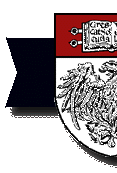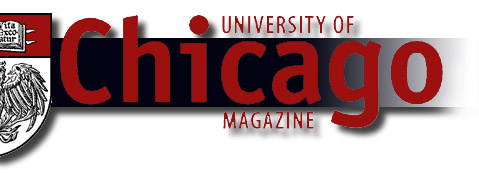 |
Viewpoints
from the Quads
Report of the Task Force on the Quality
of Student Experience, published in the University of Chicago
Record, Volume 30, Number 5, May 23, 1996: The task
force takes as a given that, above all, the University must maintain
its high academic tandards: enhancing the University as an institutional
leader in scholarship and teaching should remain our paramount priority.
All segments of the University community with whom we spoke, including
students, agreed on this priority. Students very much wish to feel
a part of the larger institutional community and its mission. They
also, however, expect their years in college and post-baccalaureate
programs to be a multidimensional experience, encompassing much
more than the acquisition of new knowledge and skills. They expect
opportunities to develop new friends and establish lifelong personal
and professional relationships, to have access to mentors, to find
their vocation and avocation, and to mature as individuals in myriad
ways.
Following 18 months of consultation with students, staff, and faculty,
we recommend the following five strategic goals with respect to
improving the quality of the student experience:
• Reduce factors that unnecessarily aggravate academic stress.
• Increase students' sense of social community.
• Foster an institutional philosophy that clearly values students.
• Increase assistance to students in developing plans and skills
for life after graduation.
• Broaden awareness of the institution outside the University
and of the talents of its students both inside and outside the University.
From the Faculty Committee for a Year
of Reflection's Report to the Committee of the Council of the Senate
(January 1998), in the University of Chicago Record, Volume 32,
Number 3, March 19, 1998: The Administration has proposed
a larger College as part of its solution to the University's serious
long-term financial problem. In order to prepare for the larger
student body, the Administration will keep the size of incoming
College classes at the present level for the next two years (that
is, for the first-year classes entering in 1998 and 1999). We concur
with that decision and believe that this time must be used to plan
fully for a larger College. To allay reasonable fears, it must be
demonstrated to the faculty that the additional matriculants will
meet our traditionally high academic standards. A clear plan must
also be developed for maintaining the traditional strengths and
quality of undergraduate education, graduate education, and research
at Chicago.
Third-year Aleem Hossain, cofounder of
Education First!, in a letter in the February 7, 1999, Chicago Tribune:
...The administration seems to want to change the U of C into a
more mainstream topnotch school with greater emphasis on freedom
for students to choose individual elective courses. Education First!
seeks to maintain the U of C's tradition of being a unique topnotch
school whose greatest selling point is its rigorous approach to
primary texts in general education course sequences. This is a critical
debate of educational philosophies, consumer mindsets, and tradition
that certainly deserves more detailed attention.
Maroon editorial, February 12, 1999:
[Those activists who] who prefer the Core of 21 courses…often
forget what the Core is all about. We believe the Core is not about
dedicating two years to disciplines in foreign departments, but
is key in getting students to work hard and actually learn subjects
they otherwise may avoid....
...No one would argue that classes at this University should be
bigger or more often taught by graduate students. It is obvious
that the University's current plan doesn't avoid this predicament…even
if what we're teaching is changing, how we're teaching it shouldn't.
Daniel Garber, the Lawrence Kimpton distinguished
service professor in philosophy, associate provost (1995–98),
chair of the 1994–96 Task Force on Graduate Education, in a
Viewpoints piece in the February 23, 1999, Maroon:
...the College faculty engaged in a serious discussion of the strengths
and weaknesses of the current curriculum, and voted for a new program
(with some small but significant changes) on the basis of its educational
value....I attended those discussions as a faculty member in the
College, and argued for revising the curriculum because I thought
that it needed improvement on purely educational grounds. And I
agree with the College Council, which is the only body that has
the authority to determine the College curriculum, that the new
core is an improvement over the old. The decrease in the size of
the core will allow us to deliver a better core, while at the same
time allowing students more time in their schedules to get a different
kind of breadth by taking more departmental courses....
Dean of the College John W. Boyer, AM'69,
PhD'75, in a March 1, 1999 letter to College alumni:
Much has been reported about the College faculty's revisions to
our curriculum. A faculty-led review of the curriculum that began
in the fall of 1995 and concluded in the spring of 1998 continued
a tradition of debate and discussion about liberal education that
has kept the University's curriculum rigorous and current over the
generations. This three-year faculty initiative reaffirmed the importance
of core-level general education as a vital first component in the
totality of the education which students receive at the College.
But it also openly and proudly designated the concentrations and
the free electives as valuable components of our students' educations,
since each of these components affords different kinds of opportunities
for our students to grow intellectually and to take responsibility
for their own educations. In paying slightly increased attention
to the role of free electives, the faculty were confident that the
habits of mind engendered by the Core sequences, and indeed by life
in this College as a whole, are precisely those that make our students
good at taking advantage of electives in their third and fourth
years at the College. The intellectual maturity of our students,
which we help to create, is what we are honoring and further encouraging
by taking electives seriously as part of a College education.…Our
general-education courses will continue to be taught in the classic
Chicago style—by faculty in small discussion groups—and
they will continue to emphasize the study of original texts and
great books.
Marshall Sahlins, the Charles F. Grey
distinguished service professor emeritus in anthropology, in "The
Life of the Mind and the Love of the Body; Or, The New 'Chicago
Plan,' Now with Added Balance," an insert in the March 1999
Free Press: The tilt in the University's structure
from the graduate schools to the College is also a diversion of
resources from the one to the other. I am not speaking merely of
the evident allocation of capital investments to attracting and
accommodating greater numbers of undergraduates. There has also
been a progressive diversion of teaching resources in that direction....
Ellis Mishulovich, AB'91, third-year in
the Law School, in a letter in the March 4, 1999, Chicago Weekly
News: ...Intellectuals commonly suffer from an affliction
of the central nervous system that makes them feel dirty when they
think about money. The plain fact is that money matters. The University's
endowment is the lifeblood that makes the life of the mind possible....
The U of C has managed to maintain enough momentum to preserve its
academic reputation despite its financial weakness. But this momentum
cannot last forever. The College needs to expand. It can be done
well or poorly, and it need not change the character of this University.
Let's hope that it is done right.…
Martha Nussbaum, the Ernst Freund professor
of law and ethics in the Law School, professor in the philosophy
department and the Divinity School, in an op-ed article in the March
11, 1999, Chicago Tribune: Education is not "academic
boot camp"a phrase that I was shocked to hear on the lips of
some defenders of the old core. It is, instead, the awakening of
the mind so that it can take charge of itself and its own thought.
Up to a point, required courses can serve that function. But they
always send an ambiguous message: You are an adult, but you are
a child; you are capable of doing advanced work, but not capable
of deciding what you should be studying. At a certain point, then,
students should be encouraged to take the job of planning their
studies upon themselves, with faculty as advisers rather than dictators....
Bob Levey, AB'66, president of the University
of Chicago Alumni Association Board of Governors, in a March 12,
1999, open letter to alumni: ...As best I can tell, the
changes to the core are a correction....The core that I studied
in the mid-1960s was not exactly like the core that was invented
under Robert Maynard Hutchins. It couldn't have been, because more
knowledge had been added in the intervening years. At the same time,
new methodologies and whole new fields of scholarship had sprung
up. The "good old days" were indeed good. But they were
not meant to limit students of succeeding generations.....It is
no secret that undergraduates are a net plus to the University financially,
and graduate students are a net minus. So expanding the College
will make cash flow easier, which benefits the University in many
ways. It will also make more money available to graduate programs
and graduate students, not less, as some have predicted.
But the University is not just trying to balance its books. It
has an excellent reputation and it provides an excellent education.
Yet much of the business and professional world doesn't know that,
and a shocking number of prospective undergraduates do not know
that.
Hugo F. Sonnenschein, president, in his
April 7, 1999, State of the University Address to the faculty:
At this important moment in our history, it seems most appropriate
to state once again what I see as my primary responsibility as President.
It is my responsibility to preserve the distinctive characteristics
of our University: our dedication to research and to the growth
of knowledge—especially knowledge that transcends traditional
disciplinary boundaries; our emphasis on graduate education and
the "teaching of teachers"; and our commitment to a College
that is, as one of our colleagues recently described it, a laboratory
for the arts and sciences. It is also my responsibility to generate
and to guarantee the resources that are necessary for sustaining
these fundamental characteristics, so that our University will continue
to flourish, as Harper imagined, even a thousand years hence.
It has been the central paradox of my time as President that, in
order to preserve and strengthen these defining characteristics
for future generations, we have had to imagine and to implement
change, and to make difficult choices about what is truly essential
to our mission. As we set a course for our future, we must keep
what makes us distinctive from all other universities at the forefront
of our plans and build up on what have historically been our greatest
assets: our faculty and our students, and the culture that shapes
them and is in turn shaped by them. We must continue to support
innovative research and educational programs, and to promote interdisciplinary
endeavor. Finally, we need to care for and to enhance the facilities
in which our faculty and students do their work. This is how our
University will thrive, now and in the future.
|



